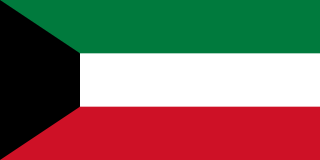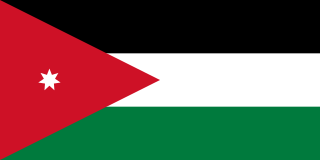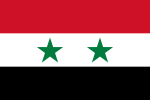The illegal drug trade, drug trafficking, or narcotrafficking is a global black market dedicated to the cultivation, manufacture, distribution and sale of prohibited drugs. Most jurisdictions prohibit trade, except under license, of many types of drugs through the use of drug prohibition laws. The think tank Global Financial Integrity's Transnational Crime and the Developing World report estimates the size of the global illicit drug market between US$426 and US$652 billion in 2014 alone. With a world GDP of US$78 trillion in the same year, the illegal drug trade may be estimated as nearly 1% of total global trade. Consumption of illegal drugs is widespread globally, and it remains very difficult for local authorities to reduce the rates of drug consumption.

Narco-state is a political and economic term applied to countries where all legitimate institutions become penetrated by the power and wealth of the illegal drug trade. The term was first used to describe Bolivia following the 1980 coup of Luis García Meza which was seen to be primarily financed with the help of narcotics traffickers.

The Corruption Perceptions Index (CPI) is an index that scores and ranks countries by their perceived levels of public sector corruption, as assessed by experts and business executives. The CPI generally defines corruption as an "abuse of entrusted power for private gain". The index is published annually by the non-governmental organisation Transparency International since 1995.

Fenethylline or fenetylline (INN) is a codrug of amphetamine and theophylline and so a mutual prodrug of both. It is also spelled phenethylline; other names for it are amphetaminoethyltheophylline and amfetyline. The drug was marketed for use as a psychostimulant under the brand names Captagon, Biocapton, and Fitton. The name "Captagon" is often used generically to describe illicitly-produced fenetylline.

Bahrain became a party with United Nations Convention against Corruption in 2010 after signing it in 2005.

Corruption laws exist in Egypt to criminalize extortion, embezzlement and bribery in business, but they are poorly enforced.

Corruption in Denmark is amongst the lowest in the world.

According to Transparency International's Global Corruption Barometer 2013, corruption is a large concern in the public sector as more than half of the surveyed households consider Parliament, police, public officials, and particularly the judiciary and political parties very corrupt.

Corruption in Iceland describes the prevention and occurrence of corruption in Iceland.

Corruption in the Netherlands is minimal in all major areas—judiciary, police, business, politics—as the country is considered one of the least corrupt within the European Union.

Petty and grand corruption is a growing problem within Morocco. A leaked report by a US diplomat stated in 2009 that corruption had become much more institutionalized under King Mohammed VI, and that the royal family had been using public institutions to coerce and solicit bribes.

Corruption in Kuwait is a problem resulting in political tensions in society.

Corruption in Jordan is a social and economic issue.

There are several sectors in Ethiopia where businesses are particularly vulnerable to corruption. Land distribution and administration is a sector where corruption is institutionalized, and facilitation payments as well as bribes are often demanded from businesses when they deal with land-related issues.

Corruption in Guinea-Bissau occurs at among the highest levels in the world. In Transparency International's Corruption Perceptions Index for 2023, Guinea-Bissau scored 22 on a scale from 0 to 100. When ranked by score, Guinea-Bissau ranked 158th among the 180 countries in the Index, where the country ranked first is perceived to have the most honest public sector. However, Guinea-Bissau's score has either improved or remained steady every year since its low point in 2018, when it scored 16. For comparison with worldwide scores, the best score in 2023 was 90, the average score was 43, and the worst score was 11. For comparison with regional scores, the average score among sub-Saharan African countries was 33. The highest score in sub-Saharan Africa was 71 and the lowest score was 11. In 2013, Guinea-Bissau scored below the averages for both Africa and West Africa on the Mo Ibrahim Foundation’s Index of African Governance.

Corruption in Lebanon magnified after the end of the civil war in 1990. It has been described as a case of "post-conflict corruption." Once a taboo subject, now it is at the forefront of the public debate in Lebanon. Anti-corruption sentiment has been one of the driving forces behind many of the large scale Lebanese protests in recent history.
Transparency International defines corruption as "the abuse of entrusted power for private gain". Transparency International's 2023 Corruption Perceptions Index scored the United Kingdom at 71 on a scale from 0 to 100. When ranked by score, the United Kingdom ranked 20th among the 180 countries in the Index, where the country ranked first is perceived to have the most honest public sector. For comparison with worldwide scores, the best score was 90, the average score was 43, and the worst score was 11. For comparison with regional scores, the highest score among Western European and European Union countries was 90, the average score was 65 and the lowest score was 42. The United Kingdom's score has fallen six points over the last five years and is now at its lowest point in the twelve years that the current version of the Index has been published.
The drug economy in Lebanon refers to the expanding Lebanese involvement in both drug production and trade, a phenomenon substantiated by studies. The economic and political upheaval in Lebanon, as delineated in a study by the Euro-Gulf Information Center, has driven Hezbollah, wherein narcotics serve as a notable revenue stream, to intensify its involvement in the drug economy. Western intelligence agencies estimate that Lebanon produces over 4 million pounds of hashish and 20,000 pounds of heroin annually, generating profits exceeding US$4 billion. According to The Washington Post, Lebanon's drug industry contributes substantially to the country's economy, accounting for over half of its foreign-exchange earnings.

The Syrian Captagon industry is responsible for about 80% of the global production of the Captagon drug. Syria exports the drug to various countries, mainly in the Middle East region, including Jordan, Iraq, Saudi Arabia, Gulf states, and Egypt. The drug export was one of the main sources of income for the government of Bashar al-Assad, helping it to prop up the economy during the Syrian Civil War.

Nouh Zaiter is a Lebanese drug lord and a leader of an armed militia in the Beqaa Valey, involved in drug trafficking and arms dealing in Lebanon and the Middle East. He's often in the news due to his alleged connections with Hezbollah and the Syrian regime, and his involvement in the drug trade, particularly Captagon.

















